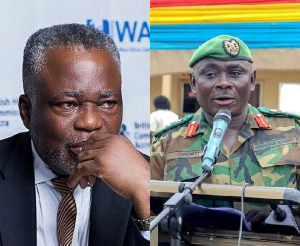Information available to Financial Intelligence suggests that the decision by the Ministry of Communications to send the Western Telesystems Ltd (Westel)/Zain deal to parliament for a belated approval could in itself open another can of worms in the matter of divestitures involving State Owned Enterprises in recent times.
This decision, according to experts, lends credence to the suggestion that Zain Ghana has operated illegally since its entrance into the Ghanaian telecommunications market, as there was no parliamentary approval for the $125 million deal between Government of Ghana and Mo Ibrahim’s Zain.
Many experts are questioning the intention of government to ratify a sale agreement that had sidelined a constitutional body, the Divestiture Implementation Committed (DIC), mandated to deal professionally with such sales of state enterprises.
An expert this paper contacted on the issue pointed out that Government must follow due process in ensuring that DIC plays its role to set the tone for Parliamentary approval.
Unlike the Ghana Telecom/Vodafone deal which had had some parliamentary endorsement, albeit, controversial, inclusion of the National Communications Authority (NCA) at certain stages, and a belated DIC handing-over, the Zain acquisition did not involve any of these institutions.
The Telecommunications expert who was part of the Inter-Ministerial Committee set up to review the Ghana Telecom/Vodafone deal, Ben Adu, for instance has questioned why the ministry would be seeking to seek Parliamentary approval for a divestiture which was carried out without the DIC.
“People must begin to understand that the major intention for setting up the committee to review the Vodafone deal was to establish the culture of due process in Ghana,” he argued. Dr. Adu suggested that for any parliamentary approval to be sought for such a deal, care must be taken that the due process has been followed.
A few weeks ago the Financial Intelligence (FI) revealed under the headline “Illegal divestitures Zain, Vodafone trapped’ that the Zain deal was also done without the participation of the DIC.
In fact, extensive search at the DIC offices produced no single document on the SPA between Government of Ghana and Zain on the sale of Westel.
Executive Secretary of the DIC, Asaakua Agambila who incidentally was secretary to the previous DIC board stated categorically that the committee had nothing at all to do with the Zain deal.
In an interview with the FI Communications Minister, Haruna Iddrissu conceded there were problems associated with the Zain deal and promised to consult his appointing authorities as to how to handle it.
In the previous Monday, October 19 edition of the Daily Graphic, it was reported that a source at the Communications ministry had intimated that the Westel/Zain deal would soon be laid before Parliament for ratification.
As to who would order the ratification, the paper did not state, but according to Article 75 of 1992 Constitution, “a treaty, agreement or convention executed by or under the authority of the President shall be subject to ratification by an act of Parliament or a resolution of Parliament. Article 108 provides for the manner in which financial bills and motions with financial implications may be brought before Parliament for consideration.
Article 181 (1) and (5) of the 1992 Constitution provide that (1) “Parliament may, by a resolution supported by the votes of a majority of all the members of parliament, authorize the Government to enter into an agreement for the granting of a loan out of any public fund or public account” and (5) “This article shall, with the necessary modifications by Parliament, apply to an international business or economic transaction to which the Government is a party as it applies to a loan.”
“Parliament does not have any mandate to execute an international agreement by virtue of article 75 of the Constitution. That is the domain of the Executive.” The Vodafone Review committee argued, noting further, that “article108 provides that Parliament shall not, unless the Bill is introduced or the motion is introduced by, or on behalf of, the President, proceed on a Bill or motion with financial and tax implications for Ghana.”
By, this and as was sought to be done in the Vodafone deal, parliament can only act on the authority of the president to ratify such a deal. But, whether or not President Mills would approve of the Zain deal belatedly in the midst of all the problems surrounding it is yet to be known. Celtel International, a subsidiary of Zain (formerly named the MTC Group) in 2007 signed an agreement to acquire 75% of Westel from the Government of Ghana for USD 120 million. By that deal Government of Ghana remains a shareholder in Westel with a 25% holding through the Ghana National Petroleum Corporation. Zain followed through to roll out its 3.5G network in the country, with Managing Director, Chris Gabriel disclosing to President Mills at the Castle that Zain had invested over $420 million in Ghana since it acquired the Westel Shares. All these have however been done on the backs of what appears to be an illegal divestiture procedure, since the entity entrusted with the responsibility of implementing government divestitures, the DIC, had been totally ignored in the whole divestiture process.
The former Managing Director of Westel, Ursula Owusu said it was a sub-committee of the Ministry of Communication, together with officials of the Finance and Justice and the State Enterprises Commission that implemented the divestiture.
She believes that since the shares were originally those of Ghana National Petroleum Corporation, and that it was not a complete acquisition that Zain did, there was no wrong doing in the sidelining of DIC.
The exclusion of DIC in from the divestiture process was one of the major causes of illegality identified in the sale of Ghana Telecom to Vodafone. Source: Financial Intelligence (Justice Lee Adoboe)
Business News of Tuesday, 10 November 2009
Source: Financial Intelligence
















